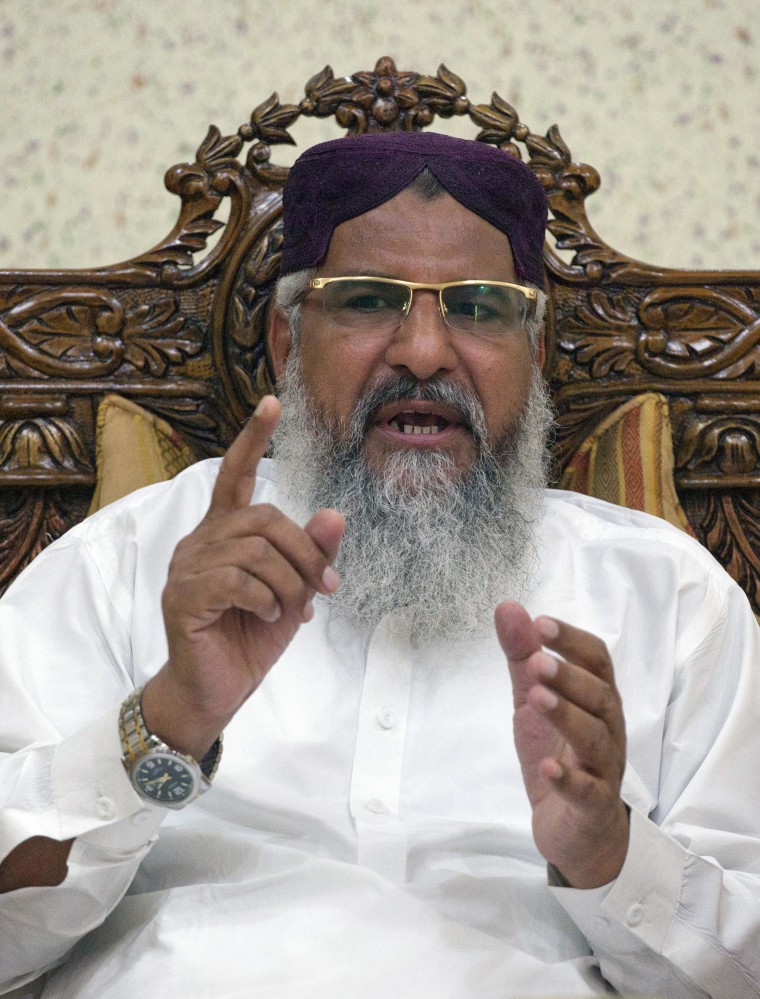The Pakistani leader of a banned extremist sectarian group activists blamed for the deaths of hundreds has been given the okay to take a seat in the country's equivalent of the U.S. House of Representatives.
Ahmed Ludhianvi, a Sunni Muslim who has denounced Shiite Muslims, will represent the city of Jhang in Punjab province, Pakistan's Election Commission ruled Wednesday.
Ludhianvi says he does not condone violence.
"My mission is to strive for Islamic Sharia system, fight terrorism and bring an end to Shiite-Sunni killings," he said after his swearing-in.
Activists worry that Ludhianvi -- who came second in May's election but was awarded the seat after the commission ruled the candidate who came first had been involved in vote rigging -- will seek to oppress Shiites, who make up some 20 percent of the population.

"He ran an election campaign on his anti-Shiite agenda, it is not possible that he won't bring it into the assembly. He will want to use parliament to declare all Shiites as heretics," Tahir Ashrafi, chairman of clerical umbrella group the All Pakistan Ulema Council, told Reuters.
Ludhianvi was a leader in Sipah-e-Sahaba, a Sunni group that emerged in Jhang in the mid-1980s and was later banned.The group reinvented itself as Ahle Sunnat Wal Jamat, which was also banned in 2012.
Ludhianvi's Twitter account describes him as patron-in-chief of ASWJ. The group's offshoot, Lashkar-e-Jhangvi, is one of the country's most feared militant groups and has claimed responsibility for the deaths of hundreds of Shiites.
Despite his background, Abida Hussain, a prominent Shiite politician and former ambassador to the U.S. called Ludhianvi a moderate who was opposed by Sunni militants.
"I hope he would be successful in bringing sectarian harmony," she said.